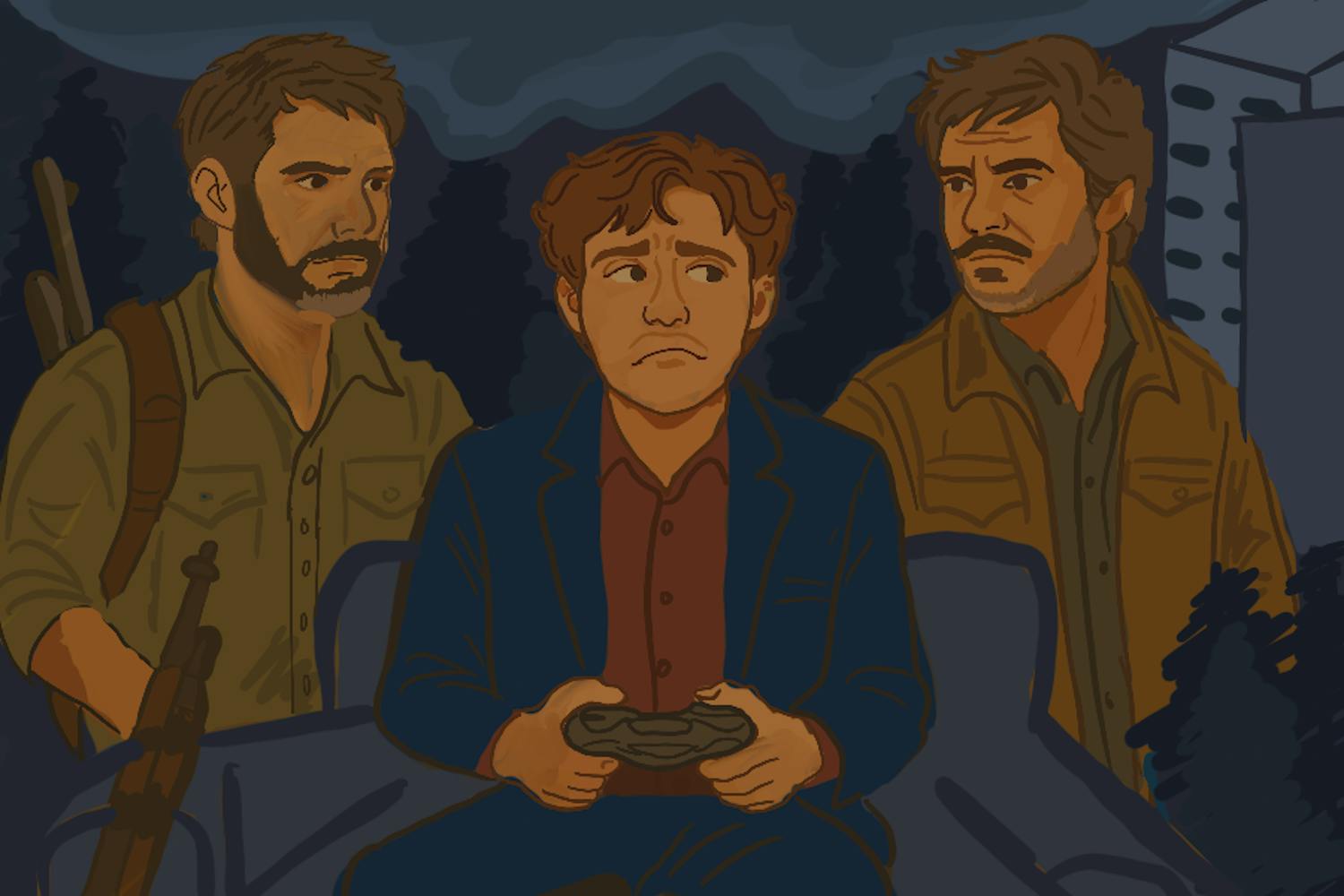The first thing you see when the lights go down and Stray Cat Theatre’s production of Samuel D. Hunter’s “The Whale," which opened Friday night, may be one of the most startling sights you will see on stage all year. Before them sits a 600-pound man beached to a couch he will remain seated on for the show’s nearly two-hour length, a reflection of the human body at its most grotesque.
Charlie, as we find out the man is named, gasps for air, quite literally wheezing for his life. He’s seemingly been set on self-destruction for years and is on the verge of achieving his goal.
There’s something fascinating about the character of Charlie, as written by Hunter. Quite rarely are obese people portrayed on stage, and never have I seen a performance such as that of Damon Dering, who plays Charlie with equal parts self-loathing and sympathy. It’s unclear at first how, or even why, Charlie has reached the size he has, and even when we find out why, Dering’s portrayal of the character is encompassing. Every wheeze seems like it could very well be his last; every step he takes seems to be painful and dangerous. Dering’s bold, sensational performance certainly could not have been an easy feat considering the 50-plus pound foam fat suit he was required to take on along with the role. Dering owns the role, giving vivid life to every part of Charlie’s absurdly large frame.
Although at first the play seems like a typical story of a man close to death, things change suddenly when we find out the reason Charlie has let things spiral out of control is due to the passing of his partner.
Enter Elder Thomas, played excellently by Austin Kiehle. Despite the odd pairing between a gay, dying man and a young Mormon missionary, the two form an odd type of friendship, one that gets quite complicated when Charlie’s nurse friend Liz, played Anne Marie Falvey (who absolutely steals every scene she is in), gets wind of the situation.
To make matters even more complicated, Charlie plans to reconnect with his estranged teenage daughter Ellie (played by Michelle Chin), who is filled to the brim with teenaged angst. Ellie — who is smokes pot, cusses and runs an Internet hate blog along with failing high school — wants absolutely nothing to do with her father, who to her is a disgusting, revolting creature. But when Charlie mentions that he is willing to pay her to spend time with her (and without her mother’s permission), Ellie becomes all ears.
The show’s simplistic set works surprisingly well and all of the actors make use of it to the upmost of their ability. Setting an entire show in one, small space is a gutsy move, but Hunter’s script is full of daring, bold choices that give the script some serious depth. Despite being, above all, deeply rooted in sadness and longing for what could have been, Hunter manages to add some great moments of humor and several quick one-liners, many of which land excellently because of the cast’s fantastic chemistry.
Perhaps the show’s only flaw lies within the script itself. While it does feature some fascinating commentary on the importance of relationships, the metaphor of the whale gets a bit tiring after a while. Sure, it’s clear that Charlie is like a whale, both in his size and his docile personality, the idea of the metaphor gets a bit strained when the idea of relating it to religion comes into play. The religious story in reference is, of course, that of Jonah and the Whale, in which Jonah rejects God’s vision and is eaten by a whale, only to be released after asking for forgiveness. Sure, the situation could be vaguely applied to that of Charlie’s shutting down after the loss of his partner, but Hunter takes it a bit further when Thomas connects the story with the loss of Charlie’s partner, Alan, who wasted to away to nothing after hearing a sermon about it at church and took away from it that being with Charlie was against God’s will. While this makes sense from a story standpoint, I felt as if it was Hunter beating the audience over the head with the metaphor, perhaps forcing it a bit too far.
Above all else, though, “The Whale” is a somber, emotionally raw piece of theater that should absolutely be seen, if not for the story than for Dering’s transcendent performance.
The play runs until March 1 at the Tempe Center for Performing Arts.
Reach the reporter at seweinst@asu.edu or follow him on Twitter @S_weinstein95



